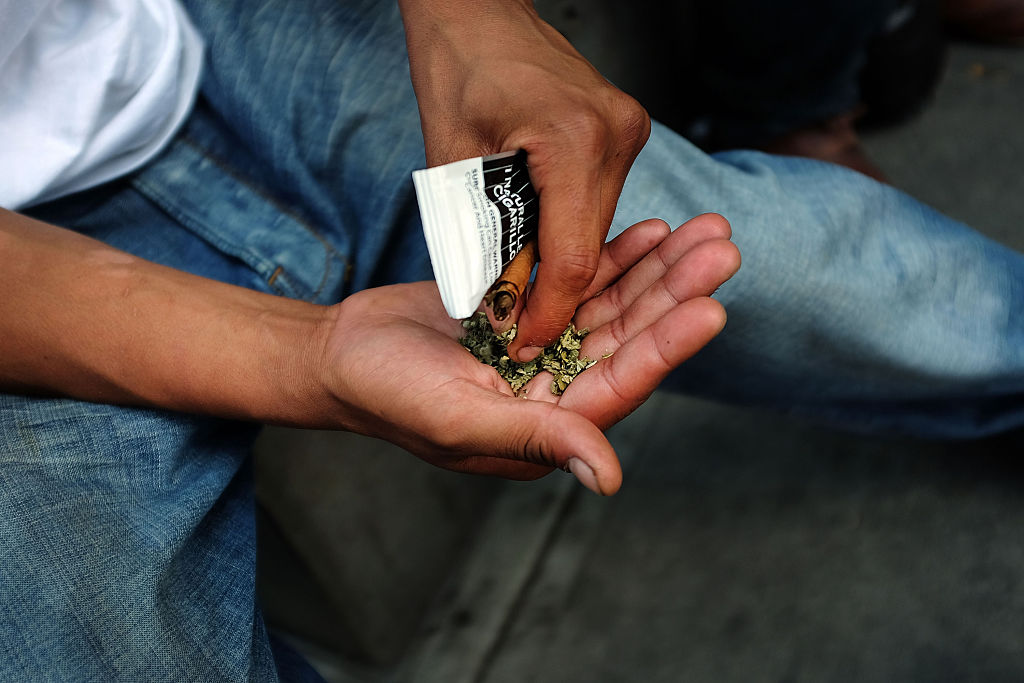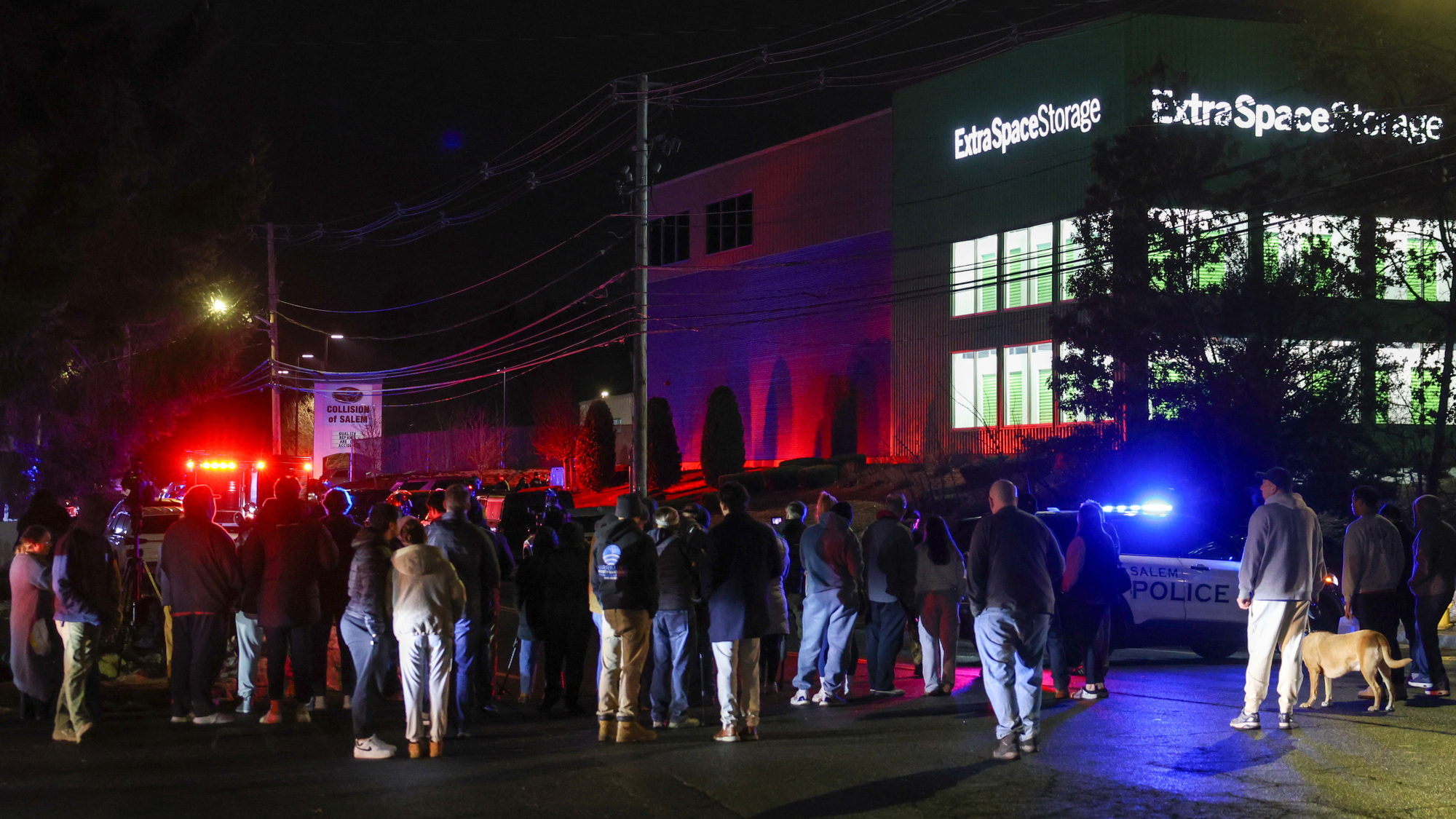'Fake weed' tied to 46 cases of severe bleeding in central Illinois

A free daily email with the biggest news stories of the day – and the best features from TheWeek.com
You are now subscribed
Your newsletter sign-up was successful
State officials in Illinois are trying to trace a batch of synthetic cannabinoids — commonly called "fake weed" — that has led to one death and 45 other cases of severe bleeding in Chicago and across central Illinois. All of the cases required hospitalization, and three of the victims tested positive for rat poison, CNN reported Monday.
Synthetic cannabinoids — man-made chemicals that are similar to the mind-altering substances found in marijuana — can be up to 85 times as potent as their natural counterparts. They're sold everywhere from convenience stores to novelty shops to online, but often contain a "variety" of compounds that users might not know about, said Dr. Nirav Shah, director of the Illinois Department of Public Health. Even though they are considered by some to be a safer alternative to marijuana, the health risks can be serious, including vomiting, seizures, hallucinations, and even heart attacks.
"This is the first time we've seen an outbreak of this magnitude in the area," said Melaney Arnold, a spokesperson for the Illinois Department of Public Health, on Monday. Before this spate of cases, a death related to synthetic weed had never been reported in Chicago.
The Week
Escape your echo chamber. Get the facts behind the news, plus analysis from multiple perspectives.

Sign up for The Week's Free Newsletters
From our morning news briefing to a weekly Good News Newsletter, get the best of The Week delivered directly to your inbox.
From our morning news briefing to a weekly Good News Newsletter, get the best of The Week delivered directly to your inbox.
Countrywide, though, cases of synthetic weed-related poisoning rose sharply from 2010 to 2015. Communities including the county of Lancaster, Pennsylvania, and Brooklyn, New York, have experienced similar outbreaks of illness related to fake weed in recent years. And given the number of cases in Illinois, "there could be additional deaths coming," Arnold said. Officials are focusing on "outreach to notify any who may be impacted by this outbreak."
Read more about synthetic cannabinoids at CNN.
A free daily email with the biggest news stories of the day – and the best features from TheWeek.com
Shivani is the editorial assistant at TheWeek.com and has previously written for StreetEasy and Mic.com. A graduate of the physics and journalism departments at NYU, Shivani currently lives in Brooklyn and spends free time cooking, watching TV, and taking too many selfies.
-
 Local elections 2026: where are they and who is expected to win?
Local elections 2026: where are they and who is expected to win?The Explainer Labour is braced for heavy losses and U-turn on postponing some council elections hasn’t helped the party’s prospects
-
 6 of the world’s most accessible destinations
6 of the world’s most accessible destinationsThe Week Recommends Experience all of Berlin, Singapore and Sydney
-
 How the FCC’s ‘equal time’ rule works
How the FCC’s ‘equal time’ rule worksIn the Spotlight The law is at the heart of the Colbert-CBS conflict
-
 Maxwell pleads 5th, offers Epstein answers for pardon
Maxwell pleads 5th, offers Epstein answers for pardonSpeed Read She offered to talk only if she first received a pardon from President Donald Trump
-
 Hong Kong jails democracy advocate Jimmy Lai
Hong Kong jails democracy advocate Jimmy LaiSpeed Read The former media tycoon was sentenced to 20 years in prison
-
 Ex-Illinois deputy gets 20 years for Massey murder
Ex-Illinois deputy gets 20 years for Massey murderSpeed Read Sean Grayson was sentenced for the 2024 killing of Sonya Massey
-
 Sole suspect in Brown, MIT shootings found dead
Sole suspect in Brown, MIT shootings found deadSpeed Read The mass shooting suspect, a former Brown grad student, died of self-inflicted gunshot wounds
-
 France makes first arrests in Louvre jewels heist
France makes first arrests in Louvre jewels heistSpeed Read Two suspects were arrested in connection with the daytime theft of royal jewels from the museum
-
 Trump pardons crypto titan who enriched family
Trump pardons crypto titan who enriched familySpeed Read Binance founder Changpeng Zhao pleaded guilty in 2023 to enabling money laundering while CEO of the cryptocurrency exchange
-
 Thieves nab French crown jewels from Louvre
Thieves nab French crown jewels from LouvreSpeed Read A gang of thieves stole 19th century royal jewels from the Paris museum’s Galerie d’Apollon
-
 Arsonist who attacked Shapiro gets 25-50 years
Arsonist who attacked Shapiro gets 25-50 yearsSpeed Read Cody Balmer broke into the Pennsylvania governor’s mansion and tried to burn it down